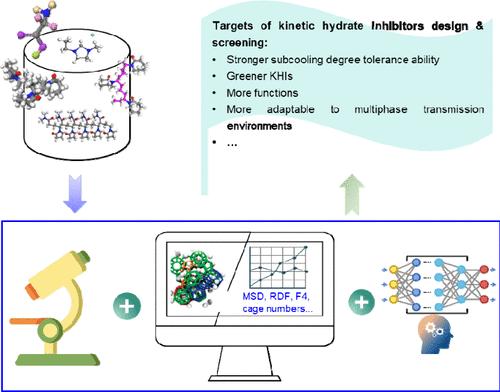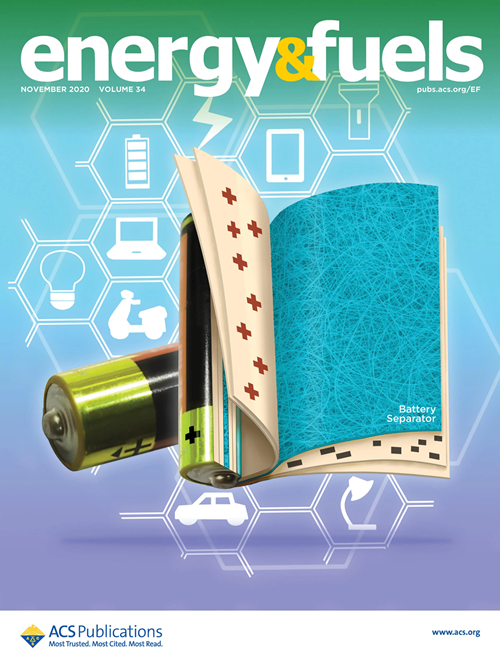实现更绿色的流动保证:设计和筛选动力学水合物抑制剂的实验和计算方法综述
IF 5.3
3区 工程技术
Q2 ENERGY & FUELS
引用次数: 0
摘要
在充满挑战的深海石油和天然气开采环境中,由于天然气水合物在海底管道中的形成和沉积而导致的水合物堵塞现象会带来巨大的运营风险。这一问题会导致管道或阀门堵塞,不仅危及油气资源的安全开采,还会对海洋环境造成威胁。为解决这一问题,实现低碳和绿色流动保障,设计和开发新型、高效、环保的动力学水合物抑制剂(KHIs)已成为石油工业的关键。综述讨论了 KHIs 的研究现状,概述了 KHI 的类型和评价方法,强调了分子动力学(MD)模拟与实验方法的结合,即 "虚实结合"。概述了 KHIs 的抑制机制及其相互之间的协同效应(增效剂)。提出了 KHIs 的发展方向,包括更环保的化学品、对多相传输环境更强的适应性以及更多功能。此外,还讨论了如何利用机器学习技术加快 KHIs 的筛选。本综述旨在为研究人员提供有价值的参考,深入探讨 KHIs 的机理,并为 KHIs 的设计和筛选提出未来方向。本文章由计算机程序翻译,如有差异,请以英文原文为准。

Toward Greener Flow Assurance: Review of Experimental and Computational Methods in Designing and Screening Kinetic Hydrate Inhibitors
In the challenging environment of deep-sea oil and gas extraction, the occurrence of hydrate plugging due to gas hydrate formation and deposition in subsea pipelines poses significant operational risks. This issue, leading to pipeline or valve blockages, not only jeopardizes the safe extraction of oil and gas resources but also poses a threat to the marine environment. To address this problem and achieve low-carbon and green flow assurance, the design and development of new, efficient, and environmentally friendly kinetic hydrate inhibitors (KHIs) have become essential for the petroleum industry. The review discusses the current research status of KHIs, providing an overview of KHI types and evaluation methods, emphasizing the combination of molecular dynamics (MD) simulations with experimental methods, i.e., the combination of “virtual and reality”. The inhibition mechanisms of KHIs and their synergistic effects with each other (synergists) are outlined. The direction of the development of KHIs, including greener chemicals, higher adaptability to multiphase transmission environments, and more functions, is proposed. Furthermore, the utilization of the machine-learning technique to accelerate the screening of KHIs is discussed. The aim of this review is to serve as a valuable reference for researchers, offering insights into the mechanism of KHIs and suggesting future directions for the design and screening of KHIs.
求助全文
通过发布文献求助,成功后即可免费获取论文全文。
去求助
来源期刊

Energy & Fuels
工程技术-工程:化工
CiteScore
9.20
自引率
13.20%
发文量
1101
审稿时长
2.1 months
期刊介绍:
Energy & Fuels publishes reports of research in the technical area defined by the intersection of the disciplines of chemistry and chemical engineering and the application domain of non-nuclear energy and fuels. This includes research directed at the formation of, exploration for, and production of fossil fuels and biomass; the properties and structure or molecular composition of both raw fuels and refined products; the chemistry involved in the processing and utilization of fuels; fuel cells and their applications; and the analytical and instrumental techniques used in investigations of the foregoing areas.
 求助内容:
求助内容: 应助结果提醒方式:
应助结果提醒方式:


